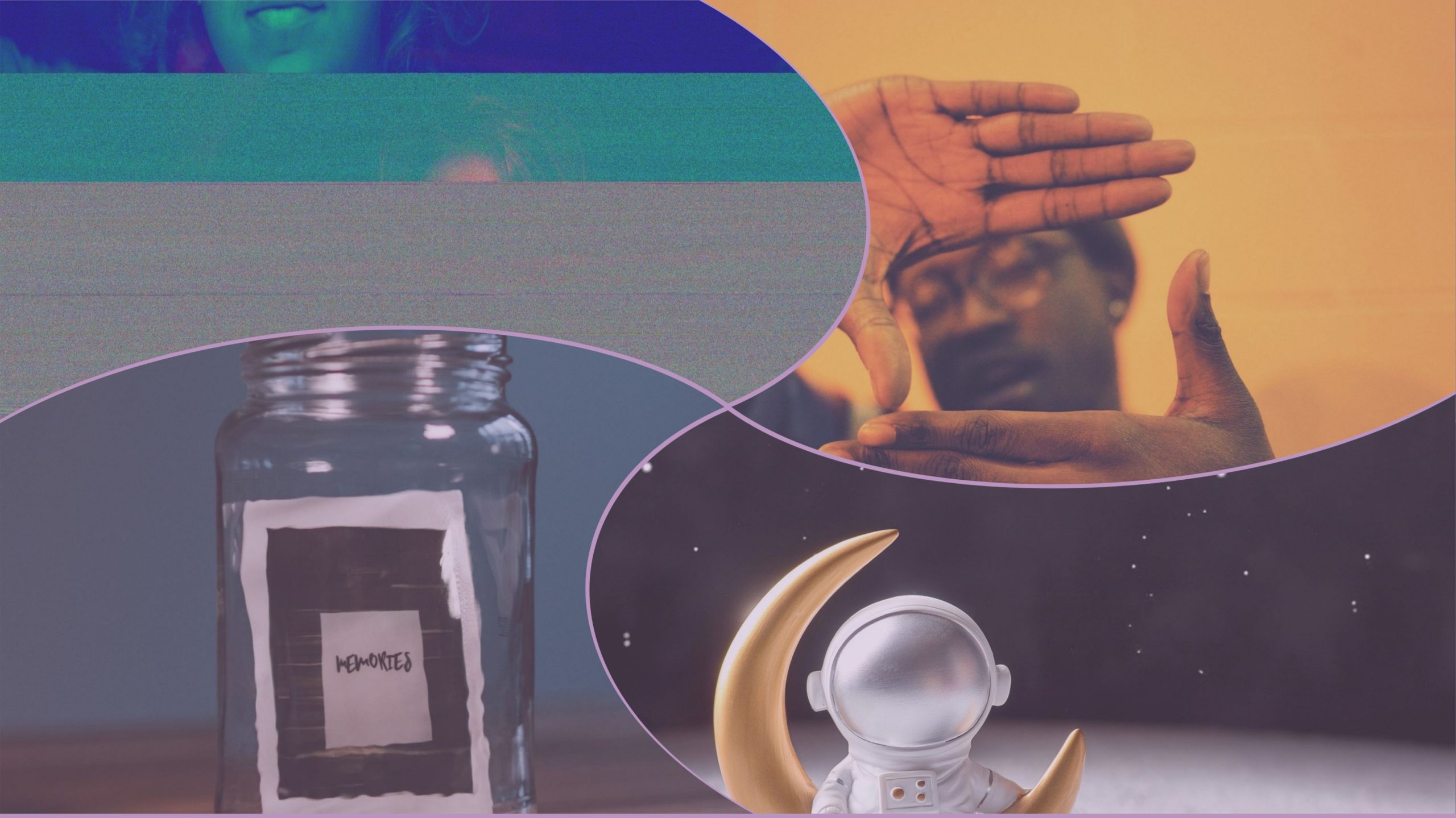In a world where the only constant is constant change, being able to balance the needs of today with the demands of tomorrow is a careful balancing act that anyone who cares about the future survival of their brand must juggle.
The Future Consumer White Paper by WGSN Insight Team has identified four consumer profiles who must be prioritised, looking at the drivers of their behaviour, their wants and needs, and – most importantly – the action points you need to take today to win their hearts and minds tomorrow.
The common element among these four groups is a shared need for realignment, with themselves, their world and the planet; an activity that evokes suggestions typical of astronomy where the synodic month, otherwise called lunation, represents the time that the Moon takes to realign its position with the Sun and the Earth again, after having completed a revolution around the latter.

We discover the Regulators, the Connectors, the Memory Makers and the New Sensorialists through the Sentiments that condition them: from the feeling of distress, driven by the rapidly accelerating change in society and technology to the rise of emotional clutter and always-on lifestyles has put our senses to the capacity; from antidotes to toxic positivity for a more realistic take on life to the rediscovered feeling of wonder.
The order in which Sentiments are combined with profiles does not represent a fixed pairing, sentiments belong to all profiles, just as happens in life.

Consumer Profiles #1
REGULATORS

Overwhelmed by data pollution and aversion to change, Regulators aim for a healthy balance between work and private life, emblematically they are represented by Gen X; a generation now distant from grunge, Riot Grrrl and the general contempt for authority, which seeks refuge in control.
After years of uncertainty and seismic change, this cohort relies on consistency as a survival mechanism. Research shows that uncertainty is more stressful than knowing something bad will definitely happen. Why? The short answer is control.
People’s ability to cope with uncertainty varies greatly, and in 2024 Regulators will face the same challenge: how to stay in control of their lives. Knowing what awaits them (good or bad) helps them prepare and gain a sense of control in the chaos.
People in this group are no strangers to uncertainty, but as they approach new phases of life, chaos and disruption are no longer motivators: they are detractors of the life Regulators want to enjoy.
Consumer Sentiment #1
FUTURE SCHOCK

Alvin Toffler and Adelaide Farrell, in their 1970 book of the same name, refer to the social and emotional paralysis induced by “shattering stress and disorientation” due to the extent and speed of the changes we are experiencing as a Future Shock.
The victim of the shock of the future, immersed in a world undergoing rapid and radical transformation, with no points of reference anymore, constantly bombarded by stimuli that would require, in response, continuous and immediate adaptation, prefers to let himself be carried away by the current rather than commit his forces to stay on board.
Toffler was absolutely not a critic of progress, a Luddite, a conservative. Far from it: he was rather a pragmatist to whom we would do well to listen more. To avoid the shock of the future, he wrote, “we need neither blind acceptance nor blind resistance, but a whole series of creative strategies to forge, divert, accelerate or selectively decelerate change.”
Features: Deny the Myth of Multitasking and Live in Compressed Time.
Consumer Profiles #2
CONNECTORS

Connectors taking a stand against hustle culture, but without being lazy, this cohort is exploring fractional lifestyles (co-purchase and subscription), redefining what success means; identifying the younger generations is characterized by less traditional dynamic relationships both at family and work level.
Economic crises are periods of “creative destruction“, in which new ideas and ways of doing business emerge: this is the synthesis of the entrepreneurial spirit of Connectors, capable of inventing new working life structures that will have a strong impact in the future.
The development of a strong critical sense towards the culture obsessed with productivity has led this group to believe in nihilism, to develop fragmented lifestyles, through new modes of loyalty and imagining alternatives to contexts full of frenetic activity.
More than half of Millennials and Gen Z adults say their career success depends on frequently updating their life skills. Companies that encourage education will see increased loyalty.
Consumer Sentiment #2
OVERSTIMULATED

Sensory historian Mark Smith says the pandemic has caused a “sensory revolution,” whereby isolation and changing work patterns and social habits have rapidly changed the way we use our senses to relate to the world. Touch is absent, while other sensory elements such as noise and artificial light seem more difficult to manage after the lockdown.
“Motion attracts our attention because it helps us survive. The more content we’re faced with, the less our attention span is and the greater our urge to look at new content” – states Eliza Aguhar, member of the Knowledge Society, a definition that well describes the members of the Overstimulated cohort.
Our brain rewards itself for absorbing information, we have an internal reward system, in which our brain acts by releasing a neurotransmitter called dopamine which allows us to feel pleasure and satisfaction as a reward for having satisfied our desire.
Feature: Lives in a Loop of Acceleration and Overstimulation.
Consumer Profiles #3
MEMORY MAKERS
In 2024, this cohort will transform a quest for perfection into a quest for being present, by decluttering their social and work lives and investing in time abundance. We have moved from unprecedented times to trying times, to trying to make the most of time.
For Memory Makers, the coping mechanism has been to anchor themselves to the past because the past does not change. It’s stable.
For many who experienced the past as a respite from the present, feelings of remorse and guilt have come to the forefront. There were also feelings of lockdown remorse as people questioned their life choices. The emotional stress of the past is driving this cohort to make up for lost time and even lost memories.
An intergenerational approach that has allowed people to spend more time with those who really matter and invest in new friendships. We no longer need filler relationships, we need fulfillment.
Consumer Sentiment #3
TRAGIC OPTIMISM

Tragic Optimism is not toxic positivity or being in a constant state of happiness. First defined in 1985 by the controversial Austrian psychologist and Holocaust survivor Viktor Frankl, Tragic Optimism involves the search for meaning in the inevitable tragedies of human existence, where literature, art, religion and all other phenomena cultural experiences are themselves the basis for finding meaning.
Researchers studying post-traumatic growth have found that people can grow positively as a result of difficult times, depending on how the event is processed. Tragic Optimism will be an imperative in 2024 because, many will be overwhelmed by “cope culture” and fearful of a return to a normality that no longer fits their aspirations, they will have to adopt this strategy.
Feature: He lives by adapting his Mindset to the imposed needs of the “Cope Culture” of the “FoNo” (Fear of Normal).
Consumer Profiles #4
NEW SENSORIALISTS

The New Sensorialist cohort contains within it a prototype hybrid consumer par excellence: they want the best of both worlds, digital wallets for physical purchases and VR moments that can be experienced in real life. This cluster pours its energy into a decisive approach to the Everything Net, where competitive advantage comes from the organic impact of connecting people, processes, data and things and from the value that this greater connection creates when everything goes online.
The IoE is creating unprecedented opportunities for organizations, individuals, communities and countries; opportunities that include work optimization, economic development, improvement of working conditions and the creation of cooperation teams.
In reference to the New Sensorialists, Stanford University economist Erik Brynjolfsson and his colleagues created a new measure to capture the contribution of digital goods called GDP-B.
A group that firmly believes that Web3 symbolizes enormous social change, imbued with innovation and overloaded with values; a space that sits in the midst of a cultural revolution made possible by technology, and not the other way around.
Consumer Sentiment #4
AWE

Yang Bai, researcher at the University of California (Berkeley) states that: “While we’re feeling small in an awe moment, we are feeling connected to more people or feeling closer to others. That’s awe’s purpose, or at least one of its purposes,” while for University of Michigan psychologist Ethan Kross, awe is “the wonder we feel when we encounter something powerful that we cannot easily explain.” A mix of both fear and wonder, it is an emotion that has been shelved in recent years as people traded awe-inspiring moments for stability, survival and certainty.
Scientists believe that awe may have helped our ancestors survive in the face of uncertain environments that demanded group cooperation, just as the awe cohort will be the great connector in a time of fragmentation.
Feature: Lives Experiencing Slowed Time Perception and Reduced Anxiety.

